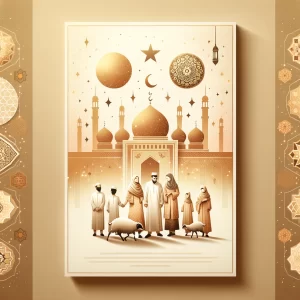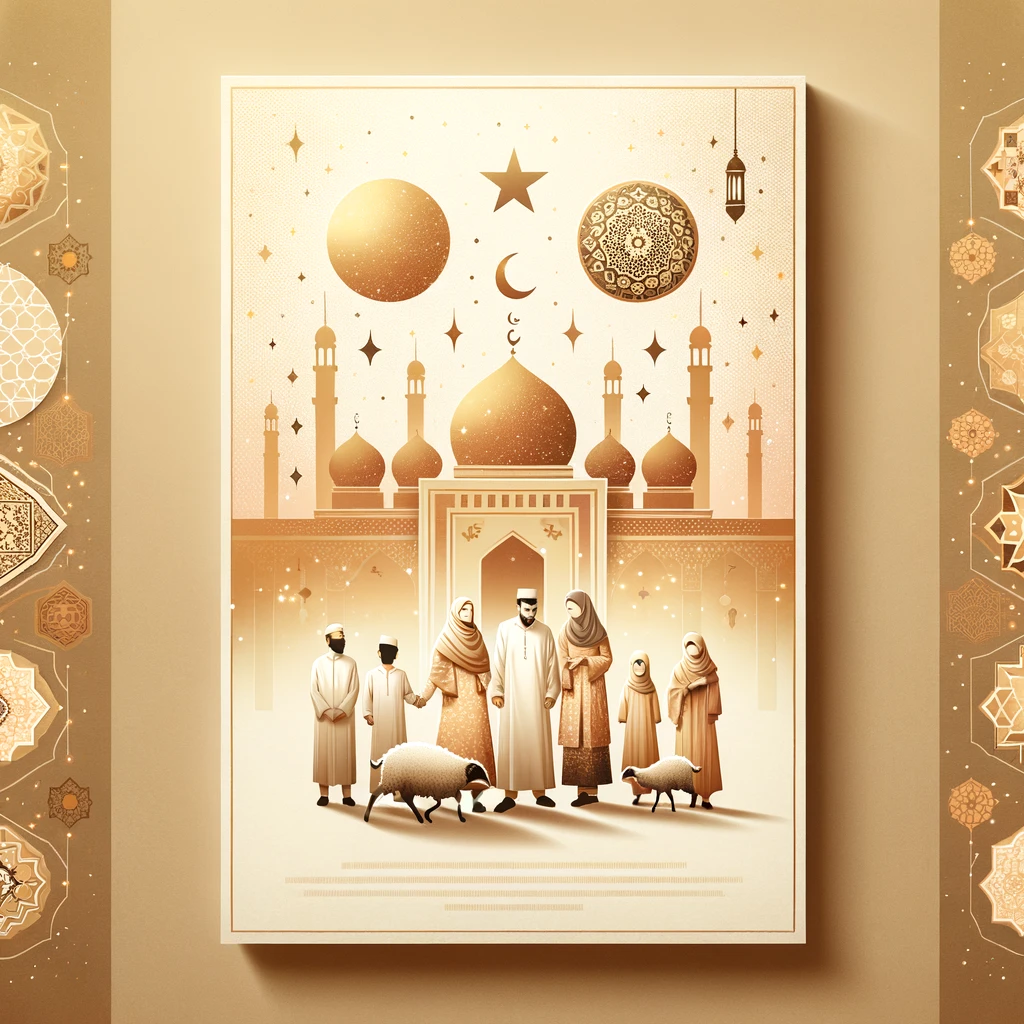
Eid Al-Adha, also known as the “Festival of Sacrifice,” is one of the two major Islamic holidays celebrated by Muslims around the world. The other major Islamic holiday is Eid Al-Fitr, which marks the end of Ramadan, the month of fasting.
Why is it Called Eid Al-Adha?
The name “Eid Al-Adha” means “Festival of Sacrifice” in Arabic. It marks the willingness of Prophet Ibrahim (Abraham in Christianity and Judaism) to sacrifice his son, Ismail (Ishmael), as an act of obedience to Allah. Just as Ibrahim was about to sacrifice his son, Allah provided a ram to sacrifice instead.
When Do We Celebrate It?
Eid Al-Adha is celebrated on the 10th day of Dhu al-Hijjah, the last month of the Islamic lunar calendar. The celebration lasts for about three days.
Why Do We Celebrate It?
Eid Al-Adha is celebrated to honor the willingness of Prophet Ibrahim to sacrifice his son as an act of obedience to Allah. It also marks the end of Hajj, the annual Islamic pilgrimage to Mecca, which is one of the Five Pillars of Islam. Hajj is performed by millions of Muslims each year and culminates in the celebration of Eid Al-Adha.
How Do We Celebrate It?
Eid Al-Adha is celebrated with various practices, including:
- Prayer: The day begins with a special prayer called Salat al-Eid, performed in congregation at mosques or open prayer grounds.
- Sacrifice: Families who can afford to do so will slaughter an animal, usually a sheep, goat, cow, or camel, in remembrance of the ram that Allah provided to Ibrahim. The meat is then distributed among family, friends, and those in need.
- Charity: Giving to the less fortunate is a significant aspect of Eid Al-Adha. This includes distributing meat from the sacrificed animal as well as other acts of charity.
- Feasting and Socializing: Families gather to share meals and celebrate together. Traditional foods and sweets are often prepared and enjoyed.
- Wearing New Clothes: It is customary to wear new or best clothes for the Eid prayer and throughout the day.
If you’re looking to understand Islam better, view our Arabic course for beginners course.
What Do We Do on Eid Al-Adha?
– Attend the Eid Prayer: Participate in the special prayer service.
– Perform the Qurbani (Sacrifice): Conduct the ritual slaughter of an animal.
– Distribute Meat: Share the meat of the sacrificed animal with family, friends, and the needy.
– Give Charity: Engage in acts of giving to help those less fortunate.
– Celebrate with Loved Ones: Spend time with family and friends, enjoying festive meals and activities.
What Does the Quran Say About It?
The story of Ibrahim’s willingness to sacrifice his son is mentioned in the Quran in Surah As-Saffat (37:100-112).
يَا بُنَيَّ إِنِّي أَرَىٰ فِي ٱلْمَنَامِ أَنِّيٓ أَذۡبَحُكَ فَٱنظُرۡ مَاذَا تَرَىٰۚ قَالَ يَـٰٓأَبَتِ ٱفۡعَلۡ مَا تُؤۡمَرُۖ سَتَجِدُنِيٓ إِن شَآءَ ٱللَّهُ مِنَ ٱلصَّـٰبِرِينَ
“O my son, indeed I have seen in a dream that I [must] sacrifice you, so see what you think.” He said, “O my father, do as you are commanded. You will find me, if Allah wills, of the steadfast.”
The verses recount how Ibrahim had a dream in which Allah commanded him to sacrifice his son. When he was about to comply, Allah intervened and provided a ram to be sacrificed instead.
What Does the Sunnah Say About It?
The Sunnah, which refers to the practices and sayings of Prophet Muhammad, provides detailed guidance on how to observe Eid Al-Adha. The Prophet Muhammad emphasized the importance of the Eid prayer, the sacrifice, and charity. He also encouraged Muslims to wear their best clothes and to share the joy of the occasion with others, especially the less fortunate.
Conclusion
Eid Al-Adha is a deeply significant and joyous occasion for Muslims around the world. It is a time for worship, reflection, charity, and community. By understanding its religious and cultural significance, one can appreciate the rich traditions and values that make this holiday a cornerstone of the Islamic faith.
